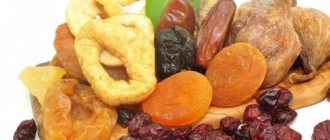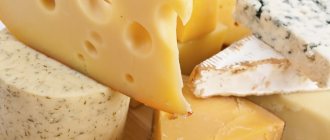From our early years, our parents told us that dairy products are good for us and our body. Cottage cheese is a source of useful microelements, calcium and protein. Parents, by hook or by crook, are trying to feed their children cottage cheese. Today, scientists are beginning to question its usefulness. Research shows that countries with high dairy consumption have higher rates of bone and gastrointestinal diseases. In this article, we will look at whether cottage cheese can cause constipation.
Can cottage cheese cause stool problems?
Homemade cottage cheese cannot cause difficult bowel movements. It is fatty and easily passes through the digestive tract and intestines. Fans of dairy diets will agree with this opinion. Low-fat cottage cheese has a dense, dry and hard consistency. This makes it difficult to pass and assimilate. A sufficient amount of water (at least 2 liters for a healthy person) and the presence of cereals, dried fruits and nuts in the diet will help to avoid this.
The cause of the disease is a large amount of cottage cheese. As a result of excessive consumption, the intestines do not have time to process the entire product, and putrefactive processes occur. Then the stool disorder occurs.
Difficulty with bowel movements in infants
Problems with bowel movements in infants occur quite often. This fact is explained by the unpreparedness of the gastrointestinal tract to process food to which it is not yet accustomed. As soon as the small organism completes the adaptation stage, stool becomes regular and does not cause concern.
If we talk about fermented milk products, then infants develop constipation from cottage cheese due to the content of complex proteins in it. The digestive system of children under 8–9 months cannot cope with milk protein, since its absorption requires the production of special enzymes, which it produces in small quantities.
Most often, problems with bowel movements in children develop due to improper introduction of complementary foods. To avoid constipation, you must follow these rules:
- do not introduce cottage cheese into the baby’s diet before eight months;
- complementary feeding should be gradual (the first portions are no more than half a teaspoon);
- the maximum amount of cottage cheese after nine months is 20 g per day;
- do not give too fatty or low-fat cottage cheese;
- Do not add sugar or other additives to cottage cheese.
If constipation from cottage cheese in a child is accompanied by bloating, abdominal pain and poor appetite, then he may have lactose intolerance. In this case, you should postpone introducing cottage cheese into your diet and consult your pediatrician.
We advise you to read: how to deal with frequent constipation in a one-year-old child?
Classic cheesecake recipe
Cheesecakes are the first cottage cheese product that comes to our mind. I offer you their classic recipe. Grind 200g of cottage cheese with 1 tablespoon of sugar. Then add one egg, vanilla and 2 tablespoons of flour. Mix everything thoroughly. Make a cheesecake and roll it in flour. In a preheated frying pan with vegetable oil, fry the cheesecakes until golden brown. They turn out more juicy if you cover them with a lid and cook them over low heat.
Fermented milk products contain many beneficial microorganisms that have a beneficial effect on the intestinal microflora
Recipes for cottage cheese dishes for constipation
To prepare dietary dishes, you must use medium-fat cottage cheese. A tasty and healthy dish for bowel problems and diseases of the digestive tract is a casserole made from a fermented milk product with the addition of fruits and vegetables.
Recipe for cottage cheese casserole with dried apricots:
- cottage cheese – 200 g;
- dried apricots – 20 g;
- egg – 1 pc.;
- semolina – 1 tsp;
- flour – 2 tbsp. l;
- sugar, vanilla, cinnamon to taste.
Products that strengthen the chair
It's worth starting with bananas. In principle, constipation in adults and children is caused by absolutely all fruits and vegetables that contain large amounts of starch. It is necessary to mention that these include all unripe vegetables and fruits. The same green bananas, for example, contain almost three times more starch than ripe ones.
Which vegetables and fruits contain a large amount of it? Among them:
- potato;
- legumes;
- blackthorn;
- gooseberry;
- pomegranate (especially pomegranate juice strongly strengthens the stool);
- celery (relevant only for the above-ground part, but the root is rich in fiber);
- coffee (caffeine, in principle, inhibits intestinal motility, so black tea should also be limited in the diet);
- persimmon (but, by the way, it also contains a huge amount of fiber, which is just useful for intestinal congestion).
Purgation
Well, in conclusion, I would like to note which products are useful for cleansing the intestines. In the process of life, the human body accumulates toxins. And he, of course, gets rid of them. It is impossible to prevent this, since our people live in a world with a disturbed ecology, in a world of diverse industry. Therefore, in order to cleanse the body, it is necessary to help it with this. We list useful foods for the small intestine and help cleanse the intestines of harmful toxins.
- Apples perfectly remove toxins of various groups and heavy metal compounds from the body. They also help cope with skin diseases and get rid of intestinal parasites.
- Celery – this product is indispensable for detoxification. Celery cleanses the blood, prevents uric acid from depositing in the joints, and also has a positive effect on the functioning of the thyroid gland.
- Beets are also an excellent option for cleansing the body. It has a greater impact on the liver, helping with detoxification.
- Artichoke stimulates bile secretion. It also contains fiber and a large amount of antioxidants.
- Onions and garlic perfectly cleanse the intestines and also remove toxins, purifying the blood.
- Cabbage has the best anti-inflammatory properties. Ideal for colon health.
- Lemon and its juice, diluted in warm water, is an excellent tonic for the heart and liver.
- Carrots are used for anemia. Perfectly removes toxins from the human body.
- Well, water. For cells to work well, they need to be fed with liquid. In a dehydrated body, all functions are disrupted. Therefore, liquid is one of the most necessary elements for normal operation.
So, healthy foods for the intestines are, first of all, fresh vegetables and fruits. They have excellent cleansing properties of the body, and also contribute to the normal functioning of the small and large intestines. The main thing is to maintain a balance of water in the body and eat a balanced diet in small portions.
Monitor your health, because it is difficult to return it to normal. But preventing the disease is much easier!
What meat can cause constipation?
As for meat, any excessively fatty meat can cause intestinal obstruction. Separately, we should highlight beef and pork, which are not always fully digested. This is a heavy product, the absorption of which requires a large amount of liquid, gastric juice, and enzymes. Only in the stomach it remains for about 2-3 hours, after which it enters the duodenum, and from there into the intestines. If a person has at least partially impaired functioning of the digestive tract, then such food will be too heavy for him. The stomach will not be able to fully digest it and, while still solid, it will enter the intestines. Naturally, this can provoke the appearance of dense stool.
What meat does not cause constipation? The best in this regard are chicken breast and rabbit. There is practically no fat there, and the protein mass itself breaks down quite easily and quickly. Duck and turkey are also suitable, but they are slightly fattier.
Nutritionists also recommend including low-fat sea fish in your diet. It is digested even faster than chicken breast. But freshwater carp or perch are heavier food, since these seafood are quite fatty. You shouldn’t completely exclude them from your diet, but you should limit them.
Usefulness comes first!
I would like to summarize all of the above. A person eats a sufficient amount of food, but not all have the same benefits. As usual, what is tasty is not healthy. To the question “What foods are good for good bowel function?”
Let's start with the fact that food intake should be timely. With regular breakfast, lunch and dinner, excess hydrochloric acid is eliminated in the stomach, which irritates the mucous membrane. Those foods and drinks that can irritate the mucous membranes should be excluded from the diet. There should be no overeating, since the stomach and intestines can only digest a certain volume.
The large intestine will work better if the food a person eats is thin and soft. Healthy foods for the colon include fresh fruits, vegetables, whole grains, and some dietary supplements (eg, bran, hemicellulose). Since this part of the intestine absorbs fluid from stool, a lack of water can lead to constipation. Therefore, it is important to drink enough liquid throughout the day.
It is also important to know which foods are good for the small intestine. The list was given earlier. The main thing is that the portions of food are small, not very cold and not very hot. Food must be chewed thoroughly so that further processing of food by the body does not cause problems.
Fermented milk products that cause constipation
Almost all fermented milk products can cause constipation. But this rule does not apply to low-fat variations. For example, whole milk most often causes intestinal obstruction in children. Pasteurized low-fat - with a negligible probability (only in the absence of the synthesis of enzymes responsible for the breakdown of the milk base). This also applies to cottage cheese, yoghurt, sour cream, kefir, fermented baked milk and so on.
The most “dangerous” fermented milk product in terms of causing constipation can be called cottage cheese. It’s even worse if you add sugar and at least a small amount of sour cream (it’s unlikely to be found on store shelves with a fat content of less than 15%).
But butter practically does not strengthen. Why? Because it uses special selected cream, which dissolves even in warm water. True, there are some brands of butter that can fortify. They contain a dry milk base.
And we can’t help but mention homemade kefir, that is, sour homemade milk. There are quite a few people who love to drink it in large quantities. You should know that fresh kefir weakens, but steeped for 3-5 days already strengthens. If you really want homemade sour milk, then it is better to replace it with yogurt - the product tastes almost identical, but does not inhibit intestinal motility and even promotes the growth of beneficial lactobacilli.
Chronic constipation in children
If bowel movements occur with a frequency of less than three times a week in a child and twice a week in an adult, then in this situation the presence of chronic constipation is determined. When diagnosing children, first of all, the increased time intervals between each bowel movement are taken into account.
In children, this manifestation has its own specific characteristics. First of all, this is due to the causes of chronic constipation. These are mainly problems of a psychological nature when a child finds himself in an environment that is unusual for him. Most often this happens when you start attending kindergarten or school, or when moving to another place of residence. Violation of the established diet and pattern of nutrition is of great importance for children.
The chronic form of constipation also depends on hereditary factors. If parents have chronic constipation, then their children are 50% susceptible to this disease.
What other foods cause constipation?
Meat, fermented milk products, vegetables with a high starch content - these are not all foods that can cause constipation. Here is a short list of what you should limit in your diet:
- pickles, various kinds of marinades (and, accordingly, marinated meat, including chicken breast);
- boiled eggs;
- white rice (it has a high starch composition), sushi;
- buckwheat, semolina and millet cereals;
- pasta (except for special dietary ones);
- some alcoholic drinks (the most “dangerous” are carbonated low-alcohol drinks and red wine);
- chocolate, glaze and all those sweets that contain cocoa in combination with butter;
- very rich fatty broths (fish broths can also cause constipation);
- some berries (lingonberries, blueberries).
Naturally, constipation is also caused by fast food, meat salads dressed with mayonnaise, and various kinds of sauces based on tomatoes and mayonnaise. All this directly affects intestinal motility or the smooth muscles of the abdomen.
And, according to scientists, obese people are more prone to intestinal obstruction. And this is precisely due to the presence of a large layer of fat on the abdomen, which interferes with normal muscle function. After all, they, in turn, contribute to normal peristalsis.
How to prevent the negative effects of constipating foods on the body
Constantly eating light, quickly digestible food is fraught with:
- damage to the intestinal walls;
- impaired stomach sensitivity;
- incorrect transmission of nerve impulses;
- hormonal imbalances;
- reduction in muscle tone and strength;
- disorders of reflex reactions in people prone to cholecystitis, gynecological diseases, ulcers, hemorrhoids;
- disturbances in the functioning of the nervous and endocrine systems;
- toxic poisoning;
- overdose of minerals and vitamins;
- difficulty passing bowel movements due to impaired muscle contractility.
To get rid of constipation, it is enough to exclude from the diet foods that provoke stool constipation. Despite the benefits, dietary content, vitamin content, even the most exotic products that have a beneficial effect on the body should remain on store shelves.
Anyone who has problems with bowel movements is recommended to:
- Drink as much fluid as possible.
- Choose foods with a high content of indigestible substances.
- Include foods rich in fiber in your diet.
The peculiarity of fiber is its ability to not be digested. This product itself already creates volume. When it enters the body along with liquid, it swells, the resulting food bolus easily cleanses the intestines, normalizing bowel movements. In addition, the lump, moving through the intestines, removes excess cholesterol, glucose, and carcinogenic substances from the body. People prone to spastic constipation should limit their fiber intake, replacing it with small portions of boiled or baked vegetables. - Eat bread with bran and cereals.
- Stick to a diet.
- Get rid of constipation by drinking a glass of warm water with lemon juice before breakfast.
- Do not neglect grated vegetable salad made from carrots, greens, beets, cabbage and seasoned with vegetable oil. If you don’t know how to replace your favorite pasta and fast food, a salad is exactly what you need.
- Eat tomatoes, pumpkin, zucchini, sweet peppers, cucumbers and dishes made from them (these vegetables are especially valuable when baked).
- Include raw pumpkin seeds in your diet as often as possible. They have a laxative effect.
- Avoid whole grain cereals (such as brown rice) with raisins and walnuts.
- Include white cabbage in the menu (it should be added to stewed, boiled, baked dishes, and also eaten raw, used as casseroles and steamed dishes).
- Eliminate persistent constipation with liquid vegetable soups. At night, it is recommended to drink a glass of low-fat kefir with a spoon of olive oil.
- Maintain a daily routine.
- Avoid “dangerous” foods (if you want to eat deli meat, you should give preference to a vegetable side dish rich in fiber; it is also important to avoid starchy junk food).
People with bowel problems need to know what foods cause constipation and how to eliminate them from their diet. The balance, usefulness, calorie content, and consistency of food have a beneficial effect on the intestines, normalizing the frequency, ease, and quantity of bowel movements.
Don't be afraid to adjust your diet. The habit of experimenting can help avoid many intestinal problems, eliminate existing gastrointestinal diseases, and normalize metabolism.
What kind of bread can cause constipation?
Oddly enough, bread can also cause constipation. This happens especially often in young children and infants who are just being introduced to complementary foods. According to nutritionists, it is better to exclude white fresh bread from the diet. It is really strong, but at the same time it can provoke the development of gastritis. But bread with bran (regardless of the class of flour used in baking), on the contrary, prevents the formation of dense feces in the intestines and promotes their normal exit from the body naturally.
Baking also provokes intestinal obstruction. It should be abandoned first. Especially when it comes to buns to which syrup is added (with poppy seeds, for example). It is generally not recommended to give these to children under 10 years of age under any pretext.
Special nutrition for intestinal diseases
A person is prone to illness. With proper nutrition, food helps fight disease, since digestion does not require much energy. Let's consider what foods are useful for intestinal diseases. Since intestinal diseases are often associated with impaired absorption of all nutrients, a deficiency of proteins and fats, as well as vitamins, iron, potassium, and calcium occurs in the human body. In this case, along with treatment, it is necessary to follow a diet that includes foods that are beneficial for the intestinal microflora.
Meals should be smaller, with an increased amount of protein in the diet. However, dairy products can compensate for the mineral deficiency in this case, but it is necessary to choose certain products. For example, fermented milk products and fresh milk are poorly tolerated in case of intestinal disease, but unsalted cheese and unleavened cottage cheese are ok.
Of course, it is worth taking into account the characteristics of the disease. For example, what foods are good for bowel cancer? The diet must include vegetables, fruits, and berries. Plant foods do not allow feces to stagnate, which means they do not allow inflammatory processes to develop. The diet should also include sea fish and cereals. Don't forget about liquid. This is also the main requirement for diseases of this kind. Some patients are prescribed to switch to vegetarianism. However, not all doctors agree that the patient should give up meat completely. The main thing is to completely avoid drinking alcohol, spices, and food should be steamed.
There are foods that are good for the intestines for ulcers. These should be foods that do not stimulate the production of hydrochloric acid in the gastric juice. These are boiled eggs, milk and vegetable soups, lean boiled meat and fish, stale white bread, cereal porridge and mineral water, but not carbonated water. The diet should be rich in vitamins as well as nutrients.
As you can see, there are foods that are useful for intestinal diseases and you cannot refuse them. They are similar to those that are present in the general list of products useful for normal intestinal function.
Features of cottage cheese
This product should be introduced into the diet with caution for diseases of the digestive tract. There are different types of it, different in structure, size and number of fractions, and consistency. When listing healthy foods that are allowed to be consumed while on a diet, it is not specified that cottage cheese can cause constipation. In most cases, this product is classified as permitted.
In fact, the answer to the question of whether there can be constipation when eating cottage cheese is positive. It is allowed to be introduced into the diet only after it has been confirmed that there are no contraindications. By comparison, milk is not a recommended diet food. If there are disturbances in the functioning of the gastrointestinal tract, it should be used with caution and in small quantities. And cottage cheese also has limitations that are determined by its properties.
A product with higher fat content is more useful. Constipation from low-fat cottage cheese occurs more often. This means that this product should not be used for certain diseases of the digestive tract, accompanied by difficulty in defecation.
However, you cannot completely abandon it. The product is prepared using milk. First, it is fermented, and when the whey is separated, a granular mass is obtained. It contains a large number of useful substances necessary to maintain the vital functions of the body.
Classification
Cottage cheese is divided into types based on composition. It may contain different amounts of fat, which is due to differences in preparation methods and technologies used. The composition of the raw materials also plays a role. So, cottage cheese is made from milk or milk mixtures. Dairy-free formulations are also used. This factor determines the properties of cottage cheese.
The more fatty milk is used in production, the correspondingly higher will be the percentage of fat components in the finished product. This helps to increase the benefits of eating such cottage cheese. Existing varieties:
- with a high content of fat components - 19-23%;
- classic - 3-18%;
- low fat - 2-3.8%;
- low fat - less than 1.8%.
The structure and properties of the curd mass are affected by the presence of lactic acid bacteria, calcium chloride, and enzymes. The best product is obtained by combining these components. The degree of fat content of cottage cheese also directly affects the nutritional value of the finished mass. So, a low-fat product is low-calorie. 100 g contains only 88 kcal. For comparison, cottage cheese with 18% fat content is higher in calories - 232 kcal.
Chemical composition
This product does not contain water or dietary fiber. This is one of the reasons why it is not recommended to abuse certain types of curd mass if the gastrointestinal tract is disrupted.
In comparison, varieties that are beneficial for diseases of the stomach and intestines contain a sufficient amount of fat components, which compensates for the lack of fluid and dietary fiber in the structure. List of nutrients included:
The curd mass contains a significant amount of proteins and fats, and, on the contrary, a minimum of carbohydrates. Their ratio is 1:0.5:0.1. Among the proteins contained in this product is casein. It is characterized by a long metabolic period. For this reason, this product is often recommended to be consumed in the evening.
Effect on the digestive process
The daily amount of cottage cheese for adults and children is different. This is due to the mechanism of action on the digestive organs. When consuming an excess amount of this product, a more aggressive effect on the intestinal walls appears. A daily amount of 20 g is sufficient for a child under 1 year of age. Gradually, more curd mass is introduced into the diet - up to 100 g. For adults, the norm is 200-250 g per day.
Regular consumption of this product is recommended to prevent deficiency of nutrients, as well as to normalize digestion.
The mechanism of its action on the body:
- intestinal microflora is restored;
- the digestion process is activated;
- the structure of feces is normalized, which helps speed up bowel movements;
- rapid absorption of metabolic products that are released after the curd mass enters the intestines;
- The process of gas formation is not disrupted, and the appearance of heaviness and discomfort in the abdominal area is not observed;
- if diseases of the stomach or intestines are diagnosed, accompanied by the appearance of erosion or ulcerative formations, in this case it is recommended to consume cottage cheese, since it does not irritate the mucous membrane of the digestive organs.
Milk for acute gastritis
If gastritis worsens, it is prohibited to consume any foods in the first two days. You can only drink plain water, rosehip infusion, and unsweetened tea.
On the third day, you are allowed to drink a small amount of fresh milk with honey, eat a little natural cream or a steamed soufflé made from pureed fresh cottage cheese. It is prohibited to consume fermented milk drinks, thermally untreated cottage cheese, cheese, and sour cream.
From the fourth day, if you feel well, you can expand your dairy diet. The menu includes kefir, yogurt and other fermented milk drinks, as well as cottage cheese, puddings, casseroles, dumplings, and cheese. Milk is only allowed to be consumed as part of drinks or dishes. If your health has not yet improved, it is recommended to follow the diet of the previous day. This diet should be followed for about 10 days. Not earlier than after 4 days, fermented milk products are introduced into the diet.
Which varieties weaken and which strengthen?
You should learn more about the properties of cottage cheese; constipation in adults when consuming it occurs if the granular mass contains a reduced, minimal amount of fat. At the same time, the mass entering the intestines greatly complicates peristalsis, since it does not contain water, dietary fiber, and has a dense structure of fractions.
In addition, caution should be exercised when consuming cheeses made from different types of cottage cheese. So, if you have constipation, you should not introduce solid and semi-solid varieties of this product into your diet. Caution should be exercised when consuming soft cheeses. At the same time, to digest the product, an increased amount of enzymes is required, which also contributes to indigestion.
The most preferred variety is pickled cheese. It is easily digested and does not cause any discomfort. This is due to the soft consistency of this product. However, pickled cheese also has limitations when used. So, it is not recommended to use it if there are problems in the functioning of the cardiovascular system or kidneys.
Causes of constipation in children
All types of childhood constipation are divided into two main parts and are organic and functional.
In the first case, they occur very rarely. The main cause is disturbances in the structure of the intestines, which can be congenital or acquired. This is mainly due to Hirschsprung's disease, when an insufficient number of nerve fibers leads to disruption of the intestines. Due to the small number of impulses, the tone of the intestinal walls is impaired. As a result, the intestinal lumen expands, causing stool retention.
In the vast majority of cases, the causes of constipation lie in functional disorders associated with insufficient development of the children's digestive system. This happens in cases where the child is switched to formula very early. When feeding such food, there is often not enough fluid. Abrupt changes between different types of mixtures can also cause disturbances. If complementary foods are too thick, they forget to give the baby more water. There is an excess amount of protein or fat in the diet itself.
The normal functioning of the digestive organs is disrupted by rickets, anemia, the presence of worms, as well as allergies to certain types of food. Psychological factors should also be taken into account. The resulting pain or mental trauma inhibits the reflex that causes defecation. In addition, one of the reasons may be the incorrect use of medications, especially antibiotics, enzymes, sorbents, antispasmodics and diuretics.
All these negative factors lead to serious disturbances in the tone of the intestinal muscles. Increased intestinal tone leads to its narrowing, temporary compression or spasms. As a result, feces have great difficulty passing through these areas. If the intestinal tone is reduced, peristalsis slows down and the walls expand. In such cases, the feces have a large diameter and a very dense fraction, which also prevents its normal passage through the intestines.
These manifestations in many cases make the act of defecation very painful. Because of this, children hold back even more, constipation worsens, and at the same time reactions of a neurotic nature occur.
In what case does cottage cheese help with constipation?
It is recommended to administer this product for the following pathological conditions:
- dysbacteriosis: thanks to the granular mass, the natural intestinal microflora is restored, since cottage cheese contains beneficial microorganisms;
- constipation, in this case, the fermented milk product acts in different directions: it restores the microflora, helps normalize the structure of feces, as a result, the digestive system begins to work without failures.
It is not advisable to consume cottage cheese for constipation that has developed due to gastrointestinal diseases. This measure is auxiliary. Changing your diet will not help eliminate the symptoms of pathologies that cause constipation (for example, intestinal obstruction). However, changing your diet during the recovery phase during or after therapy can help speed up your recovery.
Constipation and nutrition
Most often, problems with bowel movements are directly related to nutrition. It is the wrong diet and errors in eating that are the main cause of constipation. First of all, stool retention occurs with overeating and irregular meals.
People suffering from chronic constipation should follow these rules:
- do not fast for more than 4 hours in a row;
- eat fractionally (in small portions);
- do not overeat after a long fast;
- avoid overdigested food, otherwise the intestines become sluggish;
- consume at least 400–500 g of vegetables, berries and fruits daily;
- complement meat dishes with vegetable salads;
- drink enough water per day (1.5–2 liters).
In addition, in case of particular problematic stools, it is necessary to avoid consuming foods containing thickeners: jelly, flavored yoghurts, jellies, jellied meat, etc. They not only inhibit the movement of food through the intestines, but also negatively affect the structure of stool, making it too dense .
For regular bowel movements and easy release of accumulated masses, doctors recommend consuming dried fruits and fermented milk products. But are all dairy treats equally beneficial for the intestines? Is it possible to use cottage cheese for constipation ? After all, there are often cases when, on the contrary, it provokes fecal stagnation and worsens previously occurring constipation.
Recipes, menus and diet products
We advise you to read: does corn porridge help with constipation?
Treatment of constipation with cottage cheese
As a natural laxative at home, you can use granular fermented milk product. The most useful when it is difficult to pass feces is cottage cheese with a moderate fat content (6% and above). You can use homemade or store-bought product. Both varieties will help with constipation.
It is important to monitor the condition of the body. If you experience abdominal pain or flatulence, it is recommended to stop using this product. An alternative treatment option is to switch to lower-fat cottage cheese (3%).
To increase effectiveness, components are added that enhance the laxative effect of granular fermented milk mass: prunes, sour cream. It is not recommended to consume cottage cheese with various additives: preservatives, sweeteners.
In addition, you can prepare dishes based on this product that help restore stool. However, it is recommended to avoid using flour, semolina, and large amounts of sugar when preparing them. Rules to follow if you are prone to constipation:
- it is necessary to grind the cottage cheese well before use;
- During the day you need to adhere to a fractional diet (meals 5-6 times a day);
- You should not overeat, experiencing a feeling of hunger is also not recommended, in this case, use an extraordinary light snack;
- increase the daily volume of fluid to 2 liters.
When treating constipation, you should prepare food correctly. The products are boiled and baked. Can be steamed.











